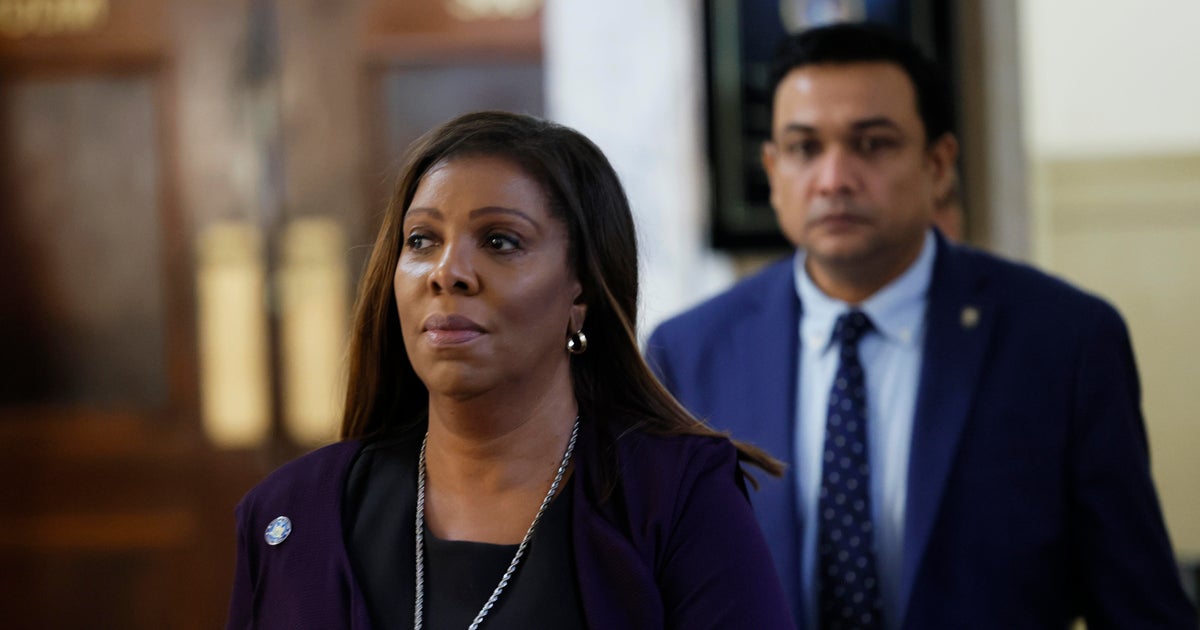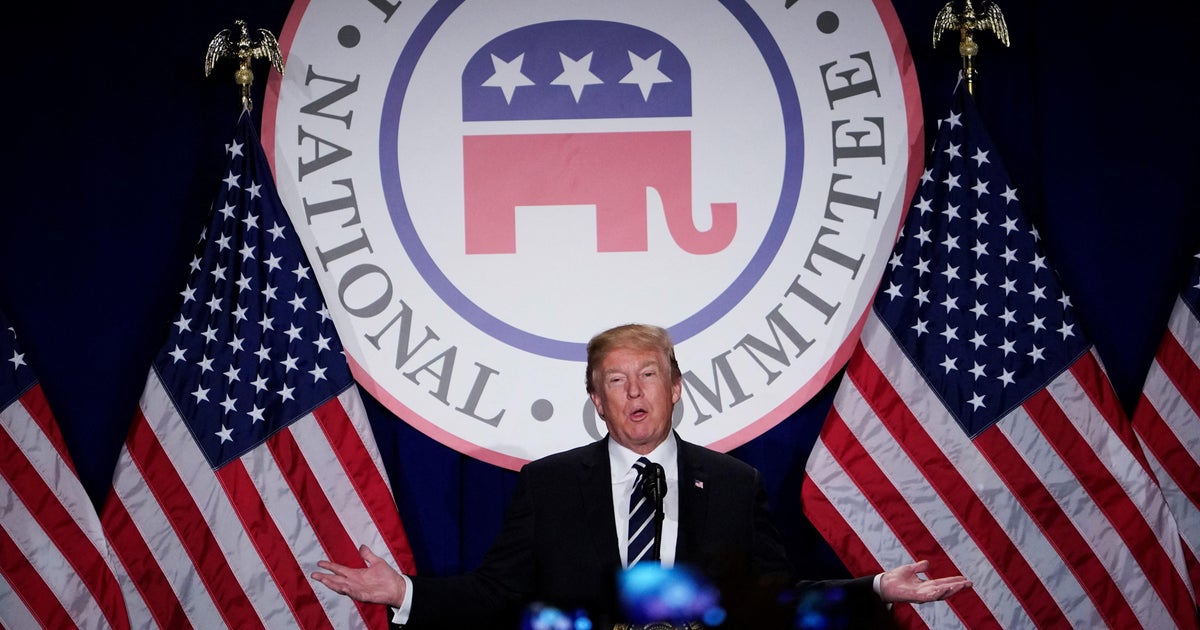DHS watchdog says Trump's acting DHS secretary changed intel report on Russian interference in 2020 election
Former Homeland Security Acting Secretary Chad Wolf changed and delayed an intelligence report detailing Russian interference in the 2020 U.S. presidential election, according to a new review by the Department of Homeland Security's (DHS) top watchdog.
The decision to deviate from DHS standard review procedures "rais[ed] objectivity concerns," according to the report, and led to the perception that unorthodox interference by a top DHS official was intended to help Donald Trump's reelection bid.
The Office of the Inspector General (OIG) at DHS, through its Office of Intelligence and Analysis (I&A), released the redacted results of its investigation into Russian interference in the election — "DHS Actions Related to an I&A Intelligence Product Deviated from Standard Procedures" — on Tuesday.
"We found that DHS did not adequately follow its internal processes and comply with applicable [intelligence community] policy standards and requirements when editing and disseminating an I&A intelligence product regarding Russian interference with the 2020 U.S. Presidential election," the DHS OIG report states, in part.
"The acting secretary participated in the review process multiple times despite lacking any formal role in reviewing the product, resulting in the delay of its dissemination on at least one occasion," the DHS inspector general report continued. "The delays and deviation from I & A standard process and requirements put [them] at risk of creating a perception of politicization."
Analysts in DHS' Cyber Mission Center (CYMC) began drafting the original intelligence product titled, "Russia Likely to Denigrate Health of US Candidates to Influence 2020 Electoral Dynamics" in April 2020, to warn state and local governments of a noticeable uptick in Russian state media efforts to question then-candidate President Joe Biden's mental health after Super Tuesday.
The DHS analyst who first raised the concern "believed foreign efforts questioning a candidate's health were worth exploring because they could impact voters' willingness to vote for that candidate and began drafting the product," the OIG report read. "In its initial form, the product was approximately two pages in length and included information relating to one 'current Democratic presidential candidate' and to Russian activities to influence the 2020 U.S. Presidential election."
At a July 8, 2020, meeting, Acting Secretary Chad Wolf — who is referenced to by his title but never named in Tuesday's OIG report — determined that the intelligence document should be "held" because it "made the President look bad," according to a whistleblower complaint.
The whistleblower, Brian Murphy, who was then principal deputy under secretary at I&A, also alleged that Wolf ordered him to shift the focus of future assessments to interference efforts by China and Iran, and that instructions to do so had come from White House national security adviser Robert O'Brien. Murphy declined to comply, he said in the complaint, because "doing so would put the country in substantial and specific danger."
"Russian disinformation was something [DHS leadership] didn't want to report on," Murphy previously told CBS News, in an October 2021 interview. "It mattered. It had a material impact on life and safety of how the events unfolded during 2018 and forward."
"Wolf told me that the plan with respect to the administration was to downplay Russian disinformation, that was supporting the Democrats… and instead, upscale the threat from China," Murphy continued. "That's where the real manipulation by the politicals came into effect. The same thing with Iran. I'm not dismissing China and Iran as threats, particularly in the disinformation space, but they differ on scale and their objectives. The Russians are the best at it. There's no one that even comes close."
Murphy was later reassigned amid reporting that his office compiled "intelligence reports" about journalists and protesters in Portland.
Tuesday's report found that, after months of delay, analysts inserted a "tone box" – a highlighted section of text – detailing efforts by Chinese and Iranian influence actors to amplify unsubstantiated narratives questioning the mental health of former President Donald Trump.
When watchdog investigators probed the CYMC manager on why the additional material – outside the scope of the initial report – was added, the DHS officials contradicted themselves.
"He told us it was a feature intended to draw a contrast between the actions of Russia and those of Iran and China, but also described the tone box as a 'blunting feature' meant to balance the product. When asked whether intelligence products require balancing, he said the addition of the tone box was not politicization, yet also said it showed I & A's political savviness, as the state and local customers of their products tended to be political," the OIG report reads.
The analytic ombudsman from I & A flagged serious concerns with the September version of the intelligence product, noting in his review that "problems with the piece undermine the original message and give the perception of a lack of objectivity or an attempt at political influence."
That assessment also suggested the addition of Iran and China "[seem] to almost avoid the main message that is made explicit in the key judgment — that Russian influence actors are targeting the Democratic candidates in 2020… The tone box on Iran/China seemingly unrelated to the main message are all areas that could be seen as 'being political,' whether intentional or not," the assessment read.
DHS' top watchdog determined that DHS deviated from its own internal requirements for editing and disseminating the report to state and local partners.
"Since January 2021, the [Office of Intelligence and Analysis] has renewed its commitment to continually assess the policies, guidelines and processes that govern the review and dissemination of its finished intelligence products, including to identity and implement and necessary improvements," wrote John Cohen, senior official performing the duties of the under secretary for the office, to Joseph Cuffari, DHS inspector general, in a memo responding to the report.
Cohen has since left his role, which is currently being filled by Melissa Smislova. President Biden's nominee to lead the office, Kenneth Wainstein, is awaiting Senate confirmation.
"This troubling report raises concerns over the prior Administration's inappropriate interference in the review and clearance process for an intelligence product," a DHS spokesperson said in a statement to CBS News. "Under the Biden-Harris Administration and the leadership of Secretary Mayorkas, the Department of Homeland Security is focused on ensuring the safety and security of communities across our country, while conducting our work with integrity and in ways that protect privacy, civil rights, and civil liberties. Since January 2021, DHS has renewed its commitment to providing accurate, timely, and actionable information and intelligence, free from politicization and bias, to the public and our partners across every level of government, in the private sector, and local communities."
Describing its methodology, the DHS watchdog wrote that Wolf requested an interview in writing rather than orally or in-person. According to the report, DHS Senior Official Performing the Duties of the Deputy Secretary Ken Cuccinelli "did not provide any responses despite agreeing to do so."
Wolf resigned his post in January 2021, after the Government Accountability Office and several federal judges deemed that he had served illegally, a judgment that he disputes.
In March 2021, the Office of the Director of National Intelligence released a report on the 2020 elections that found Kremlin-backed agents authorized by President Vladimir Putin tried to use President Trump's inner circle and right-leaning media to undermine his opponent. The report also concluded that while Iran had expanded its efforts to meddle in the 2020 presidential election, China fell short of interfering after determining it was not worth the risk.
The intelligence community found "no indications" that any foreign actor made attempts to alter technical aspects of the voting process, despite making false claims meant to undermine confidence in election results.



